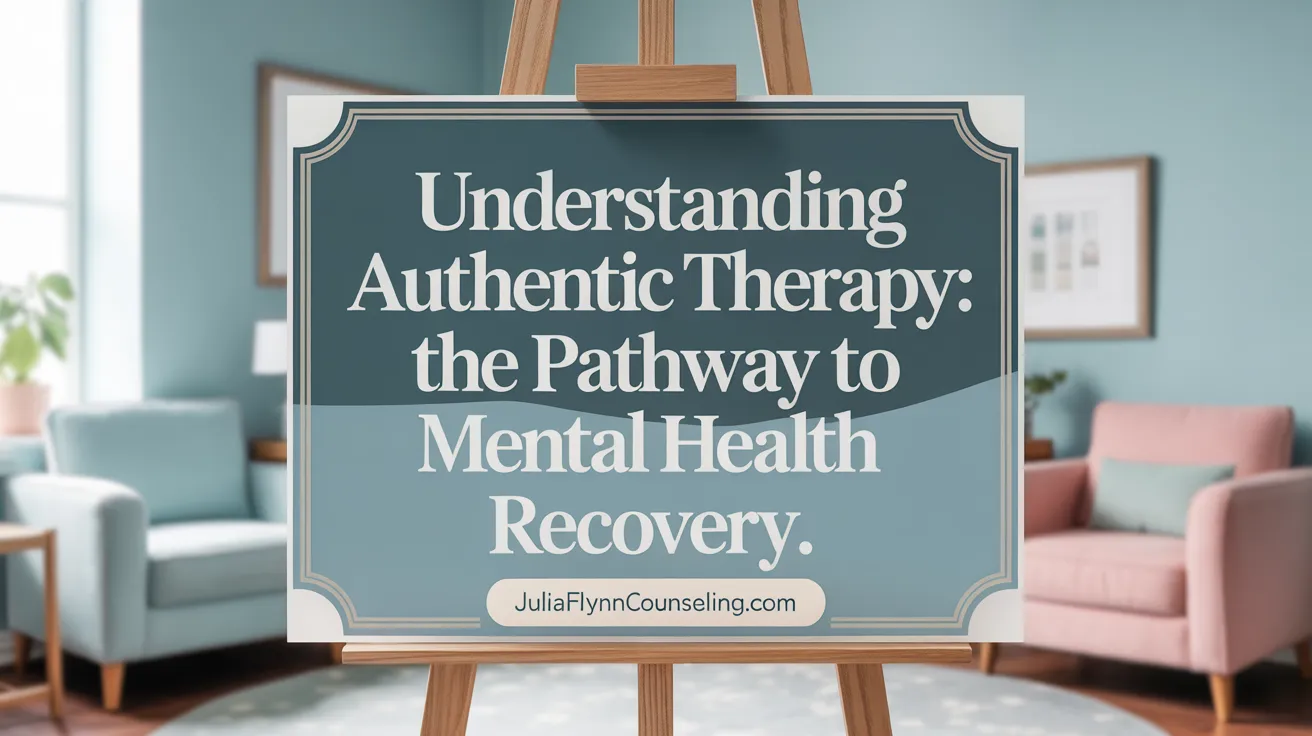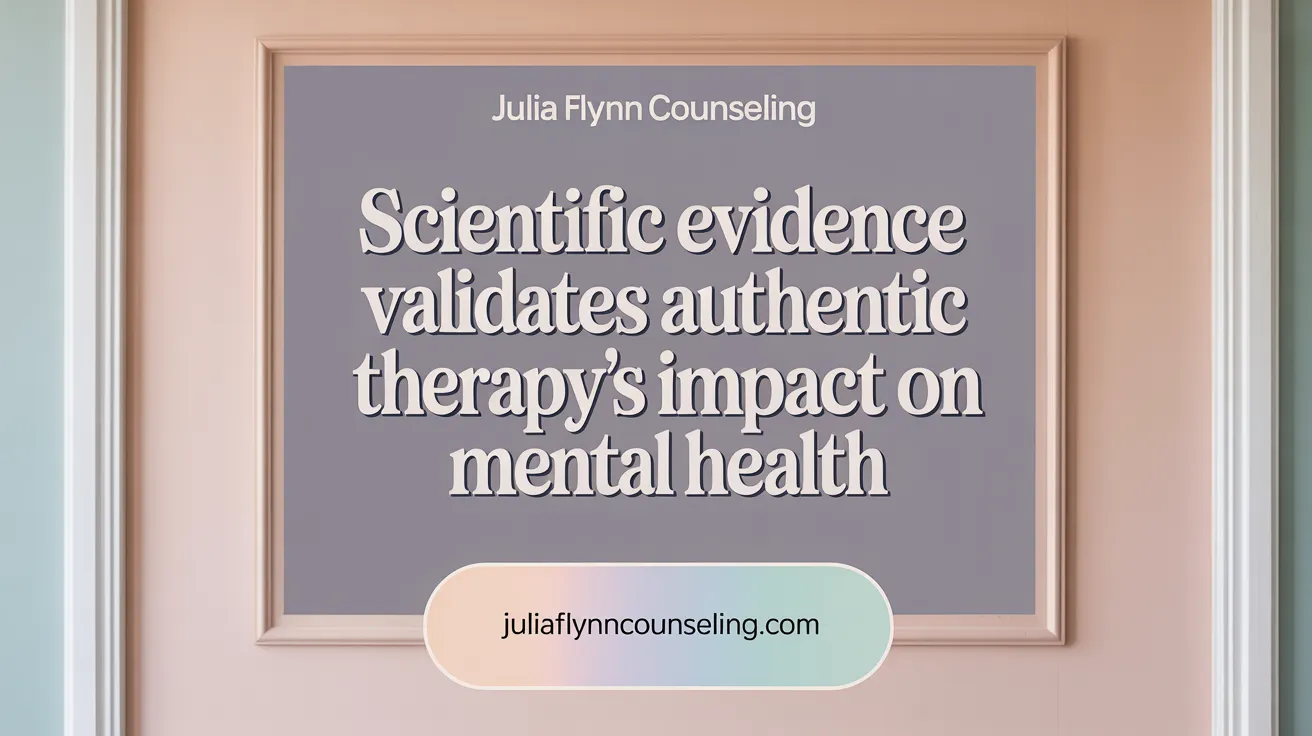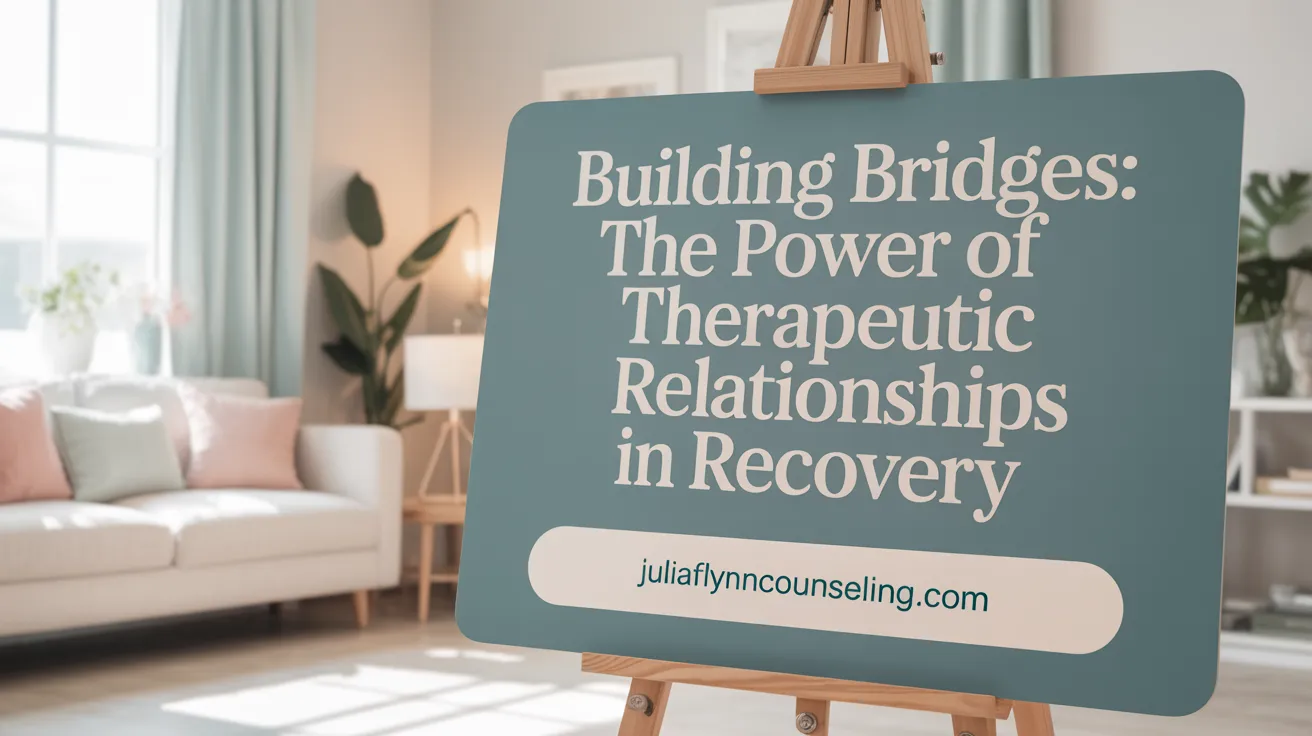Understanding the Unique Role of Authentic Therapy
Authentic therapy has emerged as a pivotal approach in mental health treatment, focusing on genuine, transparent interactions between therapist and client. This article explores how authenticity in therapy fosters mental health recovery by building trust, enhancing emotional resilience, and supporting personal growth. We delve into the principles, benefits, and strategies that make authentic therapy an effective path to healing and well-being.
Defining Authentic Therapy and Its Contribution to Mental Health Recovery
 Authentic therapy is a therapeutic approach where the therapist shows up as their genuine, whole self, including emotions, vulnerabilities, and honest communication. This transparency creates a foundation of trust and safety, allowing clients to feel more comfortable exploring their deepest thoughts and feelings (Genuine care in therapy, Therapist authenticity).
Authentic therapy is a therapeutic approach where the therapist shows up as their genuine, whole self, including emotions, vulnerabilities, and honest communication. This transparency creates a foundation of trust and safety, allowing clients to feel more comfortable exploring their deepest thoughts and feelings (Genuine care in therapy, Therapist authenticity).
A core aspect of authentic therapy is the therapist’s deliberate effort to be transparent and self-aware, balancing professionalism with genuine human connection. Therapists may share appropriately about themselves to normalize clients’ experiences and foster relatability. This fosters a strong, trusting therapeutic alliance, which research shows is a significant predictor of positive outcomes (Authentic Connection in Therapy, Balancing professionalism and authenticity).
By practicing authenticity, therapists help clients build trust in the therapeutic space, encouraging openness and vulnerability. This environment allows clients to examine past conditioning, societal influences, and internal conflicts that often hinder mental health and personal development (therapy and authentic self discovery, How Therapy Helps People Rediscover Their True Selves).
Authentic therapy facilitates deeper self-exploration, empowering clients to discover their inner truths and release feelings of shame, anxiety, and trauma associated with inauthentic behaviors or unresolved issues. It supports the process of reclaiming one’s true self, which is fundamental in mental health recovery (Authenticity in addiction recovery, Power of Authenticity in Mental Health).
This approach is especially impactful when addressing trauma, as a genuine, safe space encourages clients to confront painful memories without fear of judgment. Overall, authentic therapy’s emphasis on real human connection, honesty, and integrity nurtures resilience, healing, and sustained mental well-being, helping clients develop trust in themselves and their capacity for growth (Benefits of Therapy, Mental Health Treatments).
More information about this approach can be explored by searching.
Core Principles, Methods, and Processes Underpinning Authentic Therapy
Authentic therapy is fundamentally grounded in principles that emphasize genuineness, transparency, and unconditional positive regard. These core principles foster a therapeutic environment where clients feel safe to explore their true selves without fear of judgment. The therapeutic relationship, central to authentic therapy, is built on trust, empathy, and mutual respect, forming the foundation for effective personal growth.
Key methods used in authentic therapy include active listening, reflective engagement, and an unwavering focus on the client's sincere experiences. Therapists employ a collaborative approach, encouraging clients to lead their own self-exploration and discovery. This non-directive process allows individuals to uncover and accept their inner feelings and beliefs at their own pace.
The process of authentic therapy involves establishing initial psychological contact, which is critical for fostering trust. Through ongoing transparent communication, the therapist creates a safe space that nurtures self-awareness and emotional honesty. The approach aligns with Carl Rogers’ humanistic theory, which outlines six conditions essential for effective therapy: psychological contact, client incongruence (venturing into vulnerable areas), therapist congruence (authenticity), unconditional positive regard, empathic understanding, and the client’s experience of this understanding.
Overall, authentic therapy combines ethical professionalism with genuine human connection, guiding clients toward lasting psychological well-being. It promotes healing through a sincere, empathetic relationship where clients feel valued and understood, ultimately supporting their journey toward authenticity and self-acceptance.
The Impact of Authenticity, Trust, Empathy, and Connection on Therapy Outcomes
Building a strong therapeutic alliance is essential for effective mental health treatment. Central to this relationship are the qualities of authenticity, trust, empathy, and genuine connection, which together create a safe and supportive environment for clients.
Authenticity in therapy involves therapists being true to themselves—matching their inner thoughts, feelings, and beliefs with their outward behaviors. When therapists show genuine transparency and honesty, clients are more likely to feel safe and understood. Research shows that therapist authenticity significantly influences therapy outcomes, as it fosters emotional safety and mutual respect.
Trust and empathy are equally vital components that deepen the connection between therapist and client. Trust allows clients to openly share their deepest emotions and vulnerabilities without fear of judgment. Empathy helps therapists understand clients' perspectives, emotions, and experiences, which enhances emotional safety and paves the way for meaningful change.
A strong therapeutic alliance—characterized by these elements—has been linked to higher treatment adherence and greater engagement. Clients who feel emotionally connected are more motivated to participate actively in therapy, leading to better symptom management and improved overall outcomes.
Cultural sensitivity and responsiveness further strengthen the alliance. Therapists who understand and respect individual backgrounds and cultural contexts can tailor their approach, making therapy more relevant and effective.
When ruptures—moments of disconnect—occur, effective repair processes that involve honest communication and mutual understanding help reinforce trust and strengthen the relationship. These repair efforts are crucial for maintaining a robust alliance.
In summary, authenticity, trust, empathy, and genuine connection are not just complementary qualities—they are fundamental drivers of successful therapy. They promote openness, adherence, and resilience, ultimately supporting clients in their journey toward recovery and emotional well-being.
Evidence Supporting the Effectiveness of Authentic Therapy for Mental Health
 Research consistently underscores the importance of genuine therapeutic relationships in improving mental health outcomes. Studies show that authentic connection—marked by empathy, trust, and honesty—serves as a cornerstone in fostering client safety and openness, which are essential for effective treatment. Specifically, the quality of the therapeutic alliance has been identified as one of the strongest predictors of positive outcomes, including symptom reduction and enhanced emotional regulation.
Research consistently underscores the importance of genuine therapeutic relationships in improving mental health outcomes. Studies show that authentic connection—marked by empathy, trust, and honesty—serves as a cornerstone in fostering client safety and openness, which are essential for effective treatment. Specifically, the quality of the therapeutic alliance has been identified as one of the strongest predictors of positive outcomes, including symptom reduction and enhanced emotional regulation.
Therapist authenticity, characterized by transparency, self-awareness, and consistent application of therapeutic models, boosts client engagement and adherence to treatment. When therapists demonstrate genuine care, clients tend to feel more supported, which encourages deeper self-exploration and personal change. This alignment with psychological frameworks such as Carl Rogers' client-centered therapy emphasizes congruence and authenticity as vital elements for reducing depression and building self-esteem (Authenticity in addiction recovery).
Neuroscience further supports these findings by showing that authentic interactions activate brain regions involved in emotional regulation and self-awareness, such as the prefrontal cortex. These interactions can promote neuroplastic changes that reinforce positive emotional states, resilience, and mental stability.
Moreover, therapist confidence in their approach and ensuring consistent, model-based interventions enhance the sense of safety and trust, improving treatment retention. This consistency fosters a therapeutic environment conducive to long-lasting change (The Role of Therapy in Mental Health Recovery).
In summary, evidence from clinical research, neurobiological studies, and psychological theories converges to affirm that authenticity in therapy significantly improves mental health by strengthening relational bonds, supporting emotional processing, and facilitating recovery. This research validates the vital role of genuine human connection in therapeutic success and ongoing mental well-being (Power of Authenticity in Mental Health).
Strategies and Techniques that Support Mental Health Recovery via Authentic Therapy
 Support for mental health recovery through authentic therapeutic approaches involves fostering honest communication, self-exploration, and the alignment of actions with core personal values, which enhance trust and emotional resilience.
Support for mental health recovery through authentic therapeutic approaches involves fostering honest communication, self-exploration, and the alignment of actions with core personal values, which enhance trust and emotional resilience.
Techniques such as active listening, empathy, motivational interviewing, and mindfulness play a crucial role in this process. These methods help individuals develop self-awareness, acceptance, and emotional healing, while also reducing feelings of shame and loneliness.
Various therapeutic modalities contribute to this authenticity-based approach. Cognitive Behavioral Therapy (CBT), and Dialectical Behavior Therapy (DBT) help clients recognize and modify negative thought patterns and emotional reactions. Psychodynamic therapy explores unconscious influences and past experiences that shape current behavior, while Inner Child Work allows healing of unresolved childhood issues.
Establishing a safe and trusting relationship with therapists and support networks is fundamental. Such connections encourage vulnerability, foster accountability, and promote genuine self-expression, all vital for sustainable recovery. Authentic Connection in Therapy emphasizes the importance of emotional safety and trust in this process.
By integrating these strategies, individuals are supported in reconnecting with their true selves. This process fosters increased resilience, confidence, and emotional stability, ultimately guiding them towards a full and meaningful recovery.
Stages and Methods in Mental Health Recovery: The Role of Authentic Therapy
What are the stages and methods commonly involved in mental health recovery?
Mental health recovery is a dynamic and personalized journey that does not follow a strict linear path. It involves several key stages, starting with acceptance, where individuals acknowledge their mental health challenges and understand their diagnosis. This initial step is crucial as it lays the foundation for growth (5 Stages of Mental Health Recovery).
The next phase is insight, which involves reflecting on underlying causes, understanding patterns, and gaining awareness about personal thoughts, emotions, and behaviors. Techniques like therapy, including cognitive-behavioral and psychodynamic approaches, support this process (The Role of Therapy in Mental Health Recovery).
Following insight is action, where individuals actively engage in treatments such as psychotherapy, medication, and lifestyle adjustments like improving sleep, diet, and routines. Building healthy coping mechanisms, developing resilience, and making meaningful lifestyle changes are vital at this stage (Coping Skills for Mental Health, Maintaining Mental Wellness).
The healing phase involves experiencing personal growth, strength, and resilience as individuals overcome setbacks and celebrate progress. This often includes fostering hope and developing a positive self-view. Maintaining gains through ongoing self-care practices and support systems is essential (Ten Components of Recovery, Serious Mental Illness Recovery).
Finally, commitment entails ongoing effort to sustain mental well-being. It involves practicing self-determination, setting future goals, and engaging with supportive communities to reinforce stability and purpose (Recovery from Mental Illness).
Throughout these stages, methods such as personalized therapy, medication, social support, and holistic approaches—like art therapy, movement, and community involvement—are employed (Art Therapy vs. Traditional Therapy, Authentic Movement). Addressing societal stigma, building self-awareness, and finding new meaning also support long-term recovery (How Therapy Helps People Rediscover Their True Selves, The Role of Authenticity in Addiction and Mental Health Recovery).
The process emphasizes individual motivation, effort, and a proactive attitude, with support from trusted friends, family, and professionals (Mental Health Recovery, Power of Authenticity in Mental Health). Personal recovery aims not only at symptom reduction but also at fostering self-acceptance, purpose, and a fulfilling life, making it a deeply individual but collectively supported journey (SAMHSA Recovery Definition).
Therapeutic Relationship and Alliance as a Catalyst for Recovery
 A strong therapeutic relationship forms the foundation of effective mental health recovery. It creates a safe and trusting environment where clients feel comfortable sharing their deepest thoughts and emotions without fear of judgment. This supportive climate encourages honesty, openness, and vulnerability, which are essential for meaningful progress.
A strong therapeutic relationship forms the foundation of effective mental health recovery. It creates a safe and trusting environment where clients feel comfortable sharing their deepest thoughts and emotions without fear of judgment. This supportive climate encourages honesty, openness, and vulnerability, which are essential for meaningful progress.
Mutual trust and agreement on therapy goals and tasks further strengthen this alliance. When clients and therapists collaborate with a shared understanding of objectives, motivation and engagement naturally increase. Clients are more likely to adhere to treatment plans and actively participate, enhancing the overall effectiveness of therapy. This process highlights the importance of an authentic connection in therapy and genuine therapeutic relationship.
Research shows that the quality of the therapeutic alliance significantly predicts symptom improvement across various mental health conditions and treatment approaches. A positive alliance fosters emotional safety in therapy and strengthens the client's commitment to their recovery journey.
Early alliance formation is crucial; establishing trust and rapport in initial sessions sets the stage for ongoing progress. Therapists also focus on continuously maintaining the alliance throughout treatment, adapting to evolving client needs and challenges. This persistent focus helps sustain motivation and can lead to better long-term outcomes. For more on building trust and collaboration see therapeutic alliance benefits and challenges.
In summary, the therapeutic relationship and alliance act as catalysts for recovery by providing the emotional foundation and collaborative framework necessary for clients to heal, grow, and achieve sustained mental health improvements. Learn more about the role of therapy in mental health recovery.
Authenticity’s Influence on Personal Growth, Self-Discovery, and Emotional Well-being

In what ways does authenticity influence personal growth, self-discovery, and emotional well-being during therapy?
Authenticity is fundamental in shaping meaningful personal development through therapy. When therapists embody genuine presence—by being honest about their feelings, consistent in their words and actions, and transparent about their understanding—they create a safe space where clients feel truly seen and accepted. This trust forms the foundation for more open exploration of emotions and beliefs (Authentic Connection in Therapy, Therapist authenticity).
A therapist’s authentic engagement encourages clients to mirror that openness, normalizing their internal experiences and fostering healthy self-expression. Such modeling guides clients in embracing their true selves, including their vulnerabilities and imperfections, which are essential for authentic living (Embracing authenticity through therapy, Power of Authenticity in Mental Health).
This process reduces internal conflicts—like shame, self-doubt, or fear—and bolsters resilience, helping clients cope more effectively with emotional challenges. Over time, therapy that emphasizes authenticity promotes deeper self-awareness, allowing clients to better understand their core values, passions, and beliefs (Self-awareness in recovery, 7 Practices to Become More Authentic).
Ultimately, authenticity catalyzes sustained personal growth. It nurtures emotional well-being by supporting self-compassion and enabling clients to live in alignment with their true identity. This holistic approach not only enhances the immediate therapeutic experience but also lays the groundwork for ongoing self-discovery and long-term emotional health (Therapy and authentic self discovery, Emotional resilience and authenticity).
The Lasting Impact of Authentic Therapy on Recovery
Authentic therapy stands as a powerful modality for advancing mental health recovery through its foundation of genuine human connection, trust, and empathy. By enabling clients to safely explore their true selves and fostering therapeutic alliances grounded in authenticity, this approach supports emotional resilience, personal growth, and meaningful healing. Integrating evidence-based methods with authentic presence, therapists help clients navigate the complexities of mental health challenges, encouraging ownership of recovery and a life aligned with core values. Ultimately, embracing authenticity in therapy not only enhances clinical outcomes but also promotes sustained well-being, empowerment, and a renewed sense of self for those on their journey toward mental health recovery.
